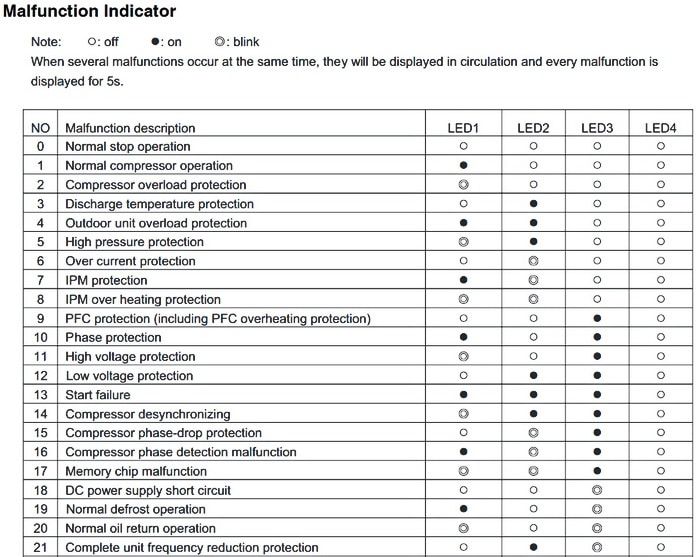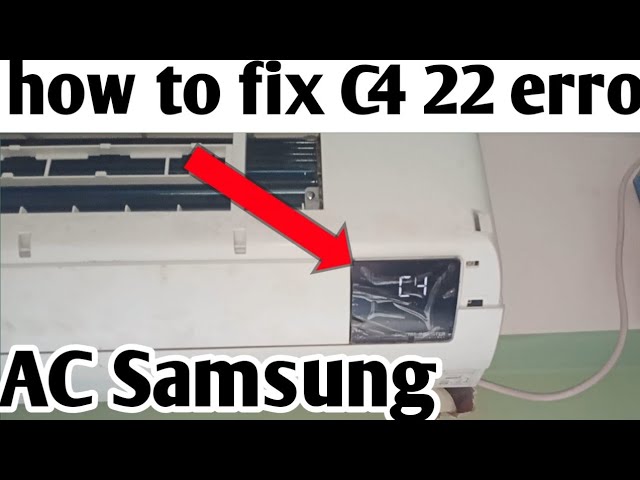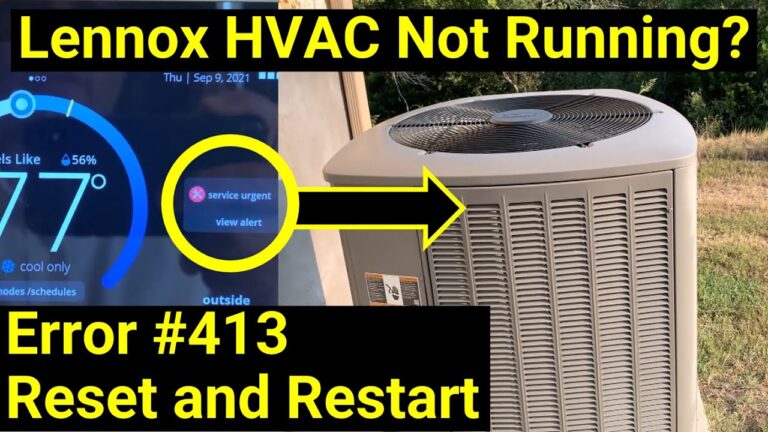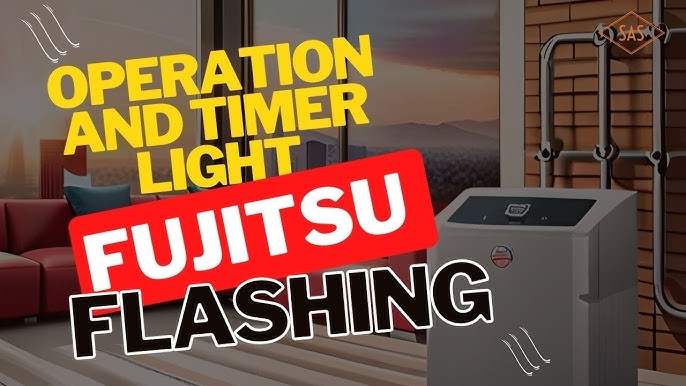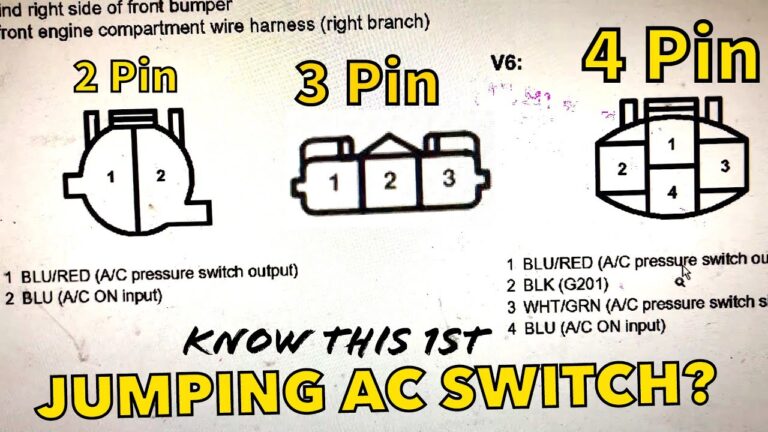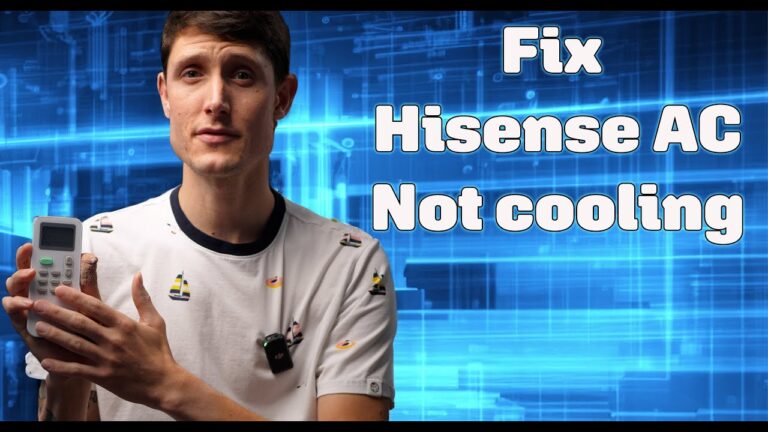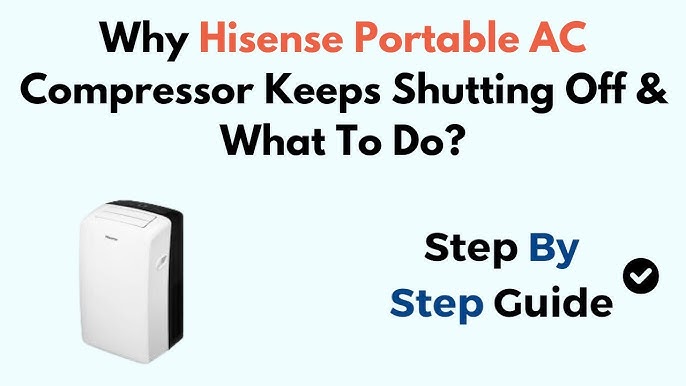What is Carrier Ductless Error Codes? Expert Guide & Solutions
Carrier ductless error codes help identify issues with your HVAC system. These codes are essential for troubleshooting problems.
Understanding these codes can save time and money on repairs. Carrier ductless systems are popular for their efficiency and flexibility. Yet, like any technology, they can face issues. Error codes are a diagnostic tool used by these systems. Each code signals a specific problem, making it easier to identify and fix.
Knowing what each error code means can help maintain your system. It can also prevent small issues from becoming big problems. In this blog, we will explore what Carrier ductless error codes are. We’ll also explain how they work and why they are important. This knowledge can help you keep your system running smoothly.

Credit: www.pinterest.com
Introduction To Carrier Ductless Systems
Carrier Ductless Systems offer a modern solution for controlling the temperature in your home. They are efficient, versatile, and easy to install. These systems are especially useful in spaces where traditional ductwork is impractical.
Features And Benefits
Carrier Ductless Systems come with a range of features that enhance their functionality and convenience. Some of the most notable features include:
- Energy Efficiency: These systems use advanced technology to minimize energy consumption, helping you save on utility bills.
- Flexibility: Ductless systems can be installed in various types of buildings, from small apartments to large homes.
- Quiet Operation: The systems are designed to operate with minimal noise, ensuring a peaceful environment.
- Easy Installation: They do not require extensive ductwork, making the installation process quicker and less invasive.
- Advanced Filtration: Many models come with built-in air purifiers, improving indoor air quality.
Common Applications
Carrier Ductless Systems are suitable for a variety of applications. They are particularly beneficial in the following scenarios:
| Application | Description |
|---|---|
| Older Homes | Perfect for homes without existing ductwork, providing an efficient heating and cooling solution. |
| Room Additions | Ideal for newly added rooms, where extending existing ductwork is not feasible. |
| Multi-Family Dwellings | Great for apartments and condos, where individual temperature control is needed. |
| Commercial Spaces | Suitable for small offices, shops, and other commercial properties requiring efficient climate control. |
These systems offer tailored solutions, making them a versatile choice for various environments. Understanding the benefits and applications can help you make an informed decision about installing a Carrier Ductless System in your space.

Credit: www.reddit.com
Understanding Error Codes
Understanding error codes is essential for maintaining your Carrier ductless system. These codes help diagnose issues efficiently. They guide you to the exact problem, making repairs quicker and easier.
Purpose Of Error Codes
Error codes are vital for identifying problems. They ensure your Carrier ductless system runs smoothly. These codes save time and reduce guesswork. Each error code corresponds to a specific issue. This helps in pinpointing the exact problem.
Error codes alert users to potential issues. They also provide a reference for technicians. Knowing these codes helps in quick troubleshooting. This minimizes downtime and maintains system efficiency.
How Error Codes Are Displayed
Carrier ductless systems display error codes in various ways. The most common method is through the unit’s display panel. Error codes may appear as numbers or letters. Each code represents a specific fault.
Some systems use blinking lights to indicate errors. The number and pattern of blinks correspond to different issues. Refer to the user manual for code interpretation. This helps in understanding the exact problem.
Here is a table for better clarity:
| Error Code | Description |
|---|---|
| E1 | Indoor/Outdoor unit communication error |
| E2 | Indoor temperature sensor error |
| E3 | Outdoor temperature sensor error |
| E4 | Indoor fan motor error |
Understanding and interpreting these codes is crucial. It helps in maintaining the efficiency of your Carrier ductless system. Regular maintenance and prompt repairs ensure a longer lifespan for your system.
Common Carrier Ductless Error Codes
Carrier ductless systems are reliable and efficient. Yet, they can sometimes show error codes. These codes help identify issues within the system. Understanding these codes is vital for quick troubleshooting. Below are some common Carrier ductless error codes you might encounter.
E1: Indoor Unit Error
E1 indicates a problem with the indoor unit. This error often arises from sensor issues. The temperature sensor might be malfunctioning. Check for any loose connections. Ensure the sensor is in good condition.
E2: Outdoor Unit Error
E2 signifies an issue with the outdoor unit. This could be due to a faulty compressor. There might also be issues with the outdoor fan motor. Inspect these components to find the root cause. Look for any visible damage or wear.

Credit: m.youtube.com
Troubleshooting Steps
Understanding and fixing Carrier ductless error codes can be challenging. Knowing the basic troubleshooting steps helps in resolving common issues. Follow these steps to get your system back on track.
Initial Checks
First, ensure the power supply is stable. Check the circuit breakers. They should not be tripped. Look at the air filters. Clean or replace them if dirty. A dirty filter can cause many problems.
Next, inspect the indoor and outdoor units. Make sure nothing is blocking the airflow. Remove any debris or dirt around the units. Clear airflow is crucial for proper functioning.
Resetting The System
Sometimes, a simple reset can solve the issue. Turn off the power to the unit. Wait for about five minutes. Turn the power back on. This can reset the system and clear minor errors.
Ensure you follow the manual instructions for the reset process. Each model might have specific steps. Refer to the user manual for accurate guidance.
Advanced Diagnostics
Carrier ductless systems are efficient, but sometimes they show error codes. These codes help diagnose problems. Knowing these codes can save time and money. Advanced diagnostics tools can make this process easier.
Using Diagnostic Tools
Technicians use special diagnostic tools to read error codes. These tools connect to the system and display codes on a screen. Some tools also suggest possible fixes. Having the right tool is important for accurate diagnosis.
Interpreting Error Codes
Error codes can seem confusing at first. Each code corresponds to a specific issue. A manual or guide can help interpret these codes. It’s essential to know what each code means. This way, you can address the issue quickly.
Solutions To Common Errors
Carrier ductless systems are efficient and convenient. But sometimes they show error codes. These codes can be confusing. Knowing how to fix them helps keep your system running smoothly. Here are solutions to common errors.
Resolving E1 Errors
The E1 error code often relates to a communication issue between the indoor and outdoor units. You can try these steps:
- Check if the power supply is stable.
- Inspect the wiring between the units. Look for loose or damaged wires.
- Reset the system by turning off the power for five minutes. Then turn it back on.
If the error persists, contacting a professional technician is recommended.
Fixing E2 Errors
The E2 error code usually indicates a problem with the indoor temperature sensor. Follow these steps:
- Turn off the power to the system.
- Locate the indoor temperature sensor. This is often near the evaporator coil.
- Check if the sensor is clean and connected properly. Clean any dust or debris.
- Reconnect the sensor if it is loose.
- Turn the power back on and test the system.
If these steps do not resolve the issue, the sensor may need to be replaced.
Preventive Maintenance
Carrier ductless error codes can be a hassle. Regular preventive maintenance can help keep your system running smoothly. This can also prevent unexpected breakdowns and costly repairs.
Regular Inspections
Regular inspections of your Carrier ductless system are crucial. Check all components, including filters, fans, and coils. Look for signs of wear or damage. Early detection can prevent major issues.
Cleaning And Servicing
Keeping your system clean is essential. Dust and debris can block airflow. This can cause your system to work harder. Clean the filters and coils regularly. Also, ensure the outdoor unit is free from leaves and dirt.
Servicing by a professional is also important. They can check refrigerant levels and ensure all parts are working. This can extend the life of your system. It can also improve efficiency.
When To Seek Professional Help
Understanding Carrier ductless error codes can be challenging. Sometimes, it is best to seek professional help. This ensures your system is fixed properly. Here are some guidelines on when to call a technician.
Identifying Complex Issues
Some error codes indicate complex issues. These may not be easy to fix on your own. For example, electrical faults or refrigerant leaks. Attempting to fix such issues without expertise can cause more damage.
Here are some common complex issues:
- Electrical faults
- Refrigerant leaks
- Sensor failures
- Control board problems
Choosing A Qualified Technician
When seeking help, choose a qualified technician. This ensures your system is in safe hands. Look for technicians with certifications. Experience in handling Carrier ductless systems is a plus.
Consider these factors when choosing a technician:
| Factor | Details |
|---|---|
| Certifications | Check for relevant HVAC certifications. |
| Experience | Years of experience in servicing Carrier systems. |
| Reviews | Positive customer feedback and reviews. |
Choosing the right technician ensures effective and safe repairs.
Frequently Asked Questions
What Are Carrier Ductless Error Codes?
Carrier ductless error codes indicate issues with your HVAC system. These codes help diagnose and fix problems.
How Do I Find Carrier Error Codes?
Check your unit’s display panel or user manual. Error codes will show on the screen.
Can I Reset Carrier Ductless Error Codes Myself?
Yes. Turn off the power for a few minutes, then restart the unit. If problems persist, call a technician.
Why Does My Carrier Unit Show An Error Code?
Error codes can show for various reasons. Common causes include blocked filters, sensor issues, or refrigerant problems.
Conclusion
Understanding Carrier ductless error codes helps maintain your system efficiently. These codes pinpoint issues quickly, saving time and effort. Regular maintenance and prompt troubleshooting enhance your system’s lifespan. Always refer to the user manual for specific error codes. Keep your Carrier ductless system running smoothly by addressing issues early.
Stay informed and ensure optimal performance. This knowledge empowers you to handle common problems confidently.
